Jeju is said to be home to 18,000 gods and goddesses. They are loved, feared, worshipped and placated at home and at village shrines, in the island’s shamanistic rituals and Buddhist temples, on mountain peaks and other sites sacred to Taoist belief.
Grandmother Seolmundae
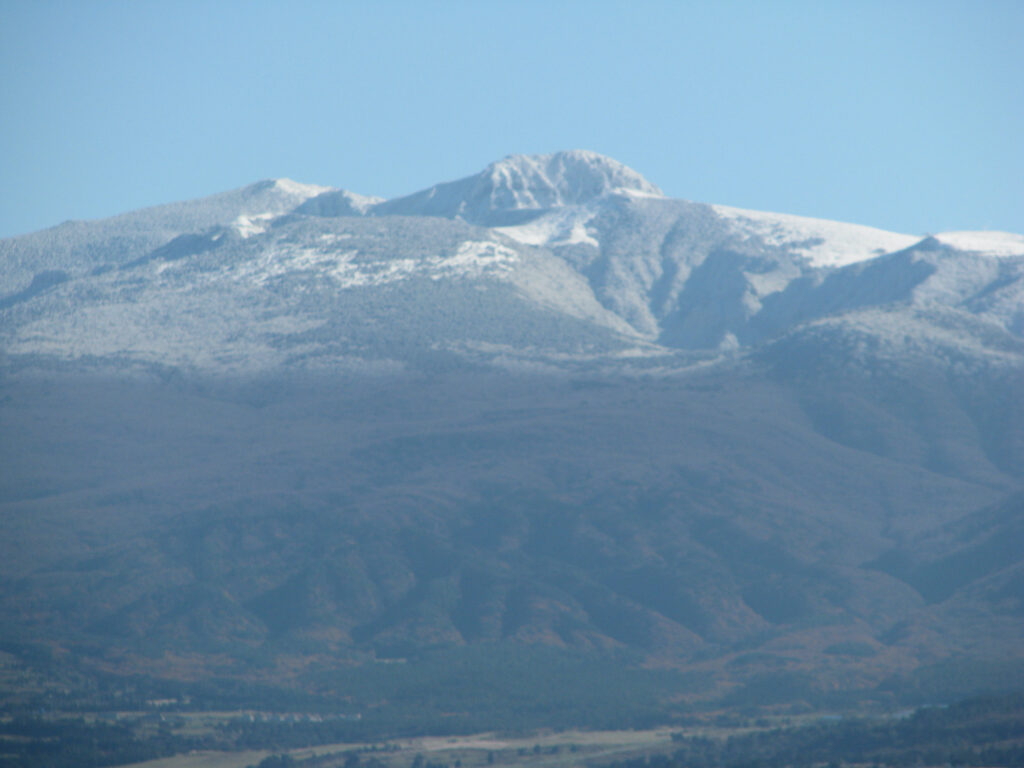
Although this goddess, Seolmudae Halmang : 설문대 할망, is known today as Grandmother Seolmundae, variations on her name include Seolmyeongji, Seolmyeongdu, Semyeongdwi, Sswemengdeui and Seolmyeongdae. Some say she is the same goddess as Grandmother Mago. She is said to have been a giant, and the many volcanic cones of Jeju, known as oreums, are said to have been built by her, as well as Halla Mountain itself. Many stories, often humorous, are told about her, and she has a husband in some of the tales. You can read about her exploits in the legends Grandmother Seolmundae and the Bridge to the Mainland and The Life and Death of Grandmother Seolmundae. One account of her death and the fate of her five hundred sons is given in the legend The 500 Generals.
Grandmother Yeongdeung
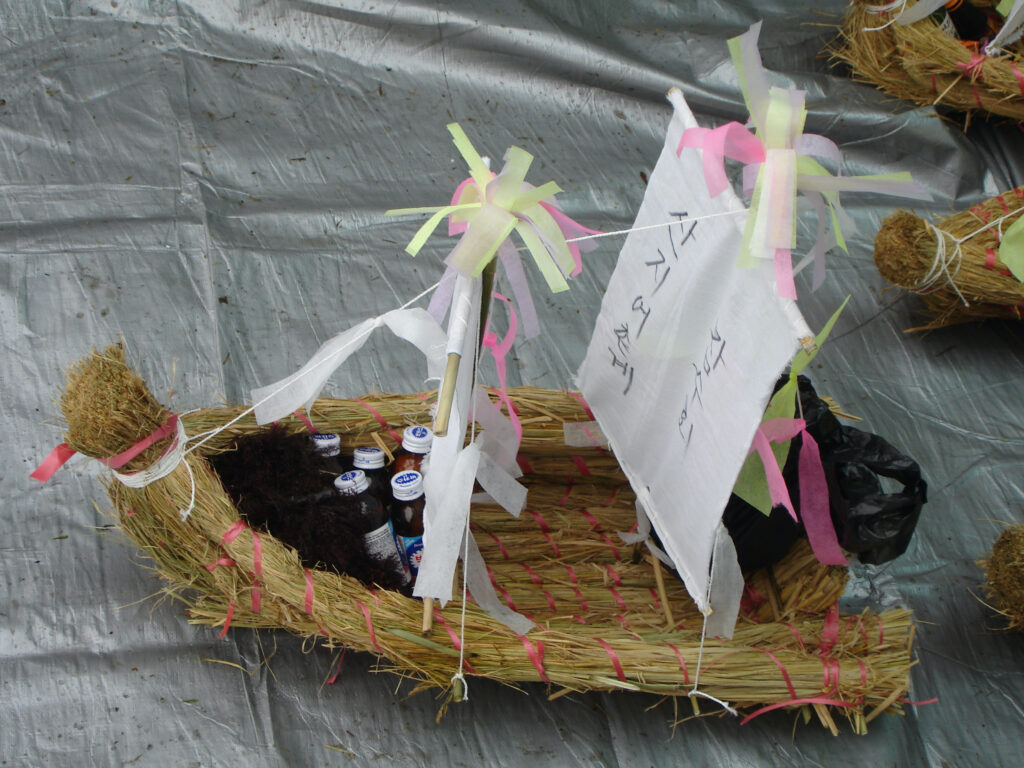
Given its location in the sea, Jeju experiences strong winds throughout the year. There are occasional typhoons in summer and fall. The wind played an important role in the well-being of the people of Jeju, since successful fishing and maritime trade and travel depended on favorable conditions. Heavy rains and rough waves often made diving, fishing and sailing difficult, dangerous or impossible. Fishermen, farmers and the diving women of Jeju known as haenyeo perform a ritual on the first of every February to welcome Grandmother Yeongdeung (Yeongdeung Halmang : 영등할망), the goddess of wind, to Jeju. She comes along with Grandfather Yeongdeung (Yeongdeung Hareubang : 영등하르방), and brings with her seeds for the coming spring, renewing the growth of seaweed, barley, fish and other crops that the islanders depend on. After traversing the island from her entry point in Gwideok Village, she passes through Udo, the easternmost islet of Jeju, two weeks later on her way home. At this time another ceremony is held to wish the godess farewell.
Watch Joey Rossitano’s excellent short documentary The Youngdeung Gods Visit Jeju Island.
Grandmother Samseung
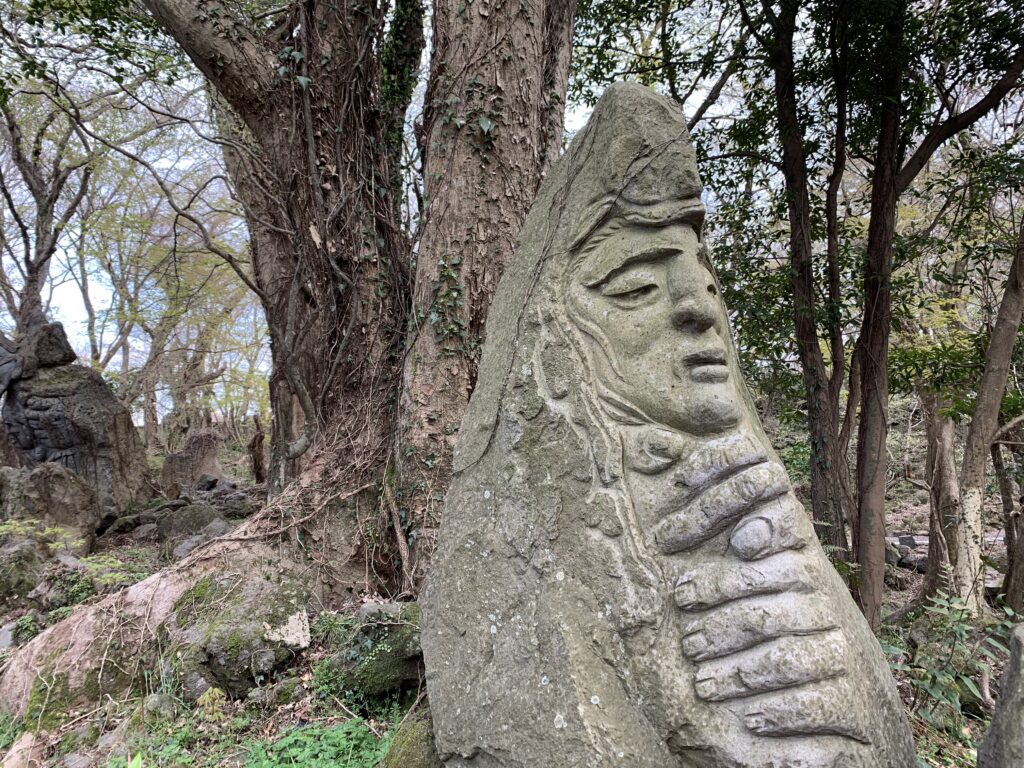
Samseung Halmang : 삼승할망 is a goddess who aids women in becoming pregnant and assists in the process of childbirth. People also pray to Grandmother Samseung to help sick children get better, and in Jeju the goddess is said to aid in particular in the curing of smallpox and measles. In the past, each village had one or two midwives who assisted women in labor. These midwives were shamans, and although they did not conduct the important shamanic rituals known as gut (굿), having the sole role of assisting in childbirth, they were nonetheless believed to have the ability to communicate with the goddess Grandmother Samseung. These shamans were called josanmu (조산무: 助産巫), meaning childbirth shaman, but as they were seen to be working in concert with the goddess of childbirth, they were also simply referred to as Grandmother Samseung.
Sinseon : Immortal Celestial Beings
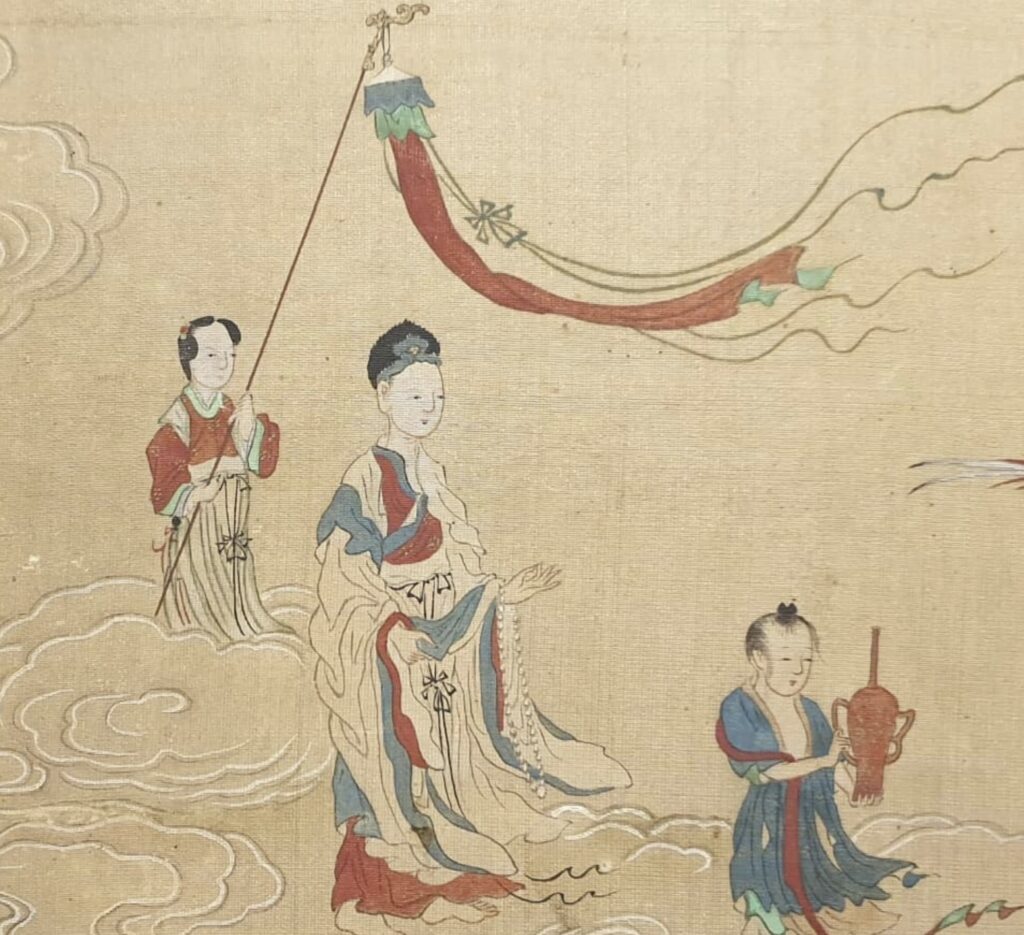
Sinseon (신선: 神仙), pronounced sheen–sun, are immortal celestial beings in the Taoist belief system, humans who have transcended earthly life and become immune to suffering and disease. The sinseon are said to have power over the winds and clouds. Weather conditions can change quickly on Halla Mountain, and people in Jeju used to believe that sinseon were responsible for the sudden appearance of rain or fog. They are said to have ridden around on white deer, which drank from the pure waters Baengnokdam, the lake in the crater at Halla’s summit. Baengnokdam got its name, meaning White Deer Lake, from legends regarding these beings. You can read about them in the legends White Deer Lake and The Immortals and Governor Gi-Geon and The Quest for Immortality.
Okhwangsanje : The Jade Emperor of Heaven
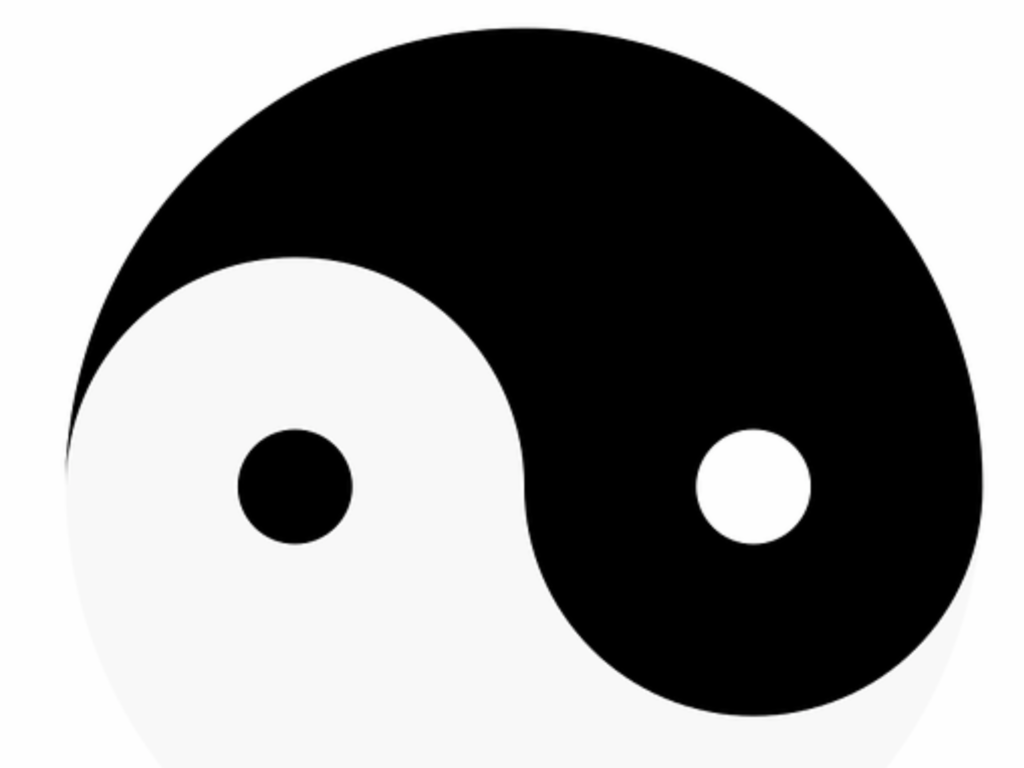
The Jade Emperor of Heaven (Okhwangsangje: 옥황상제: 玉皇上帝) is the highest of the heavenly gods of Taoist mythology, who could be called the ‘Supreme Being’ or ‘Lord of Heaven’.
